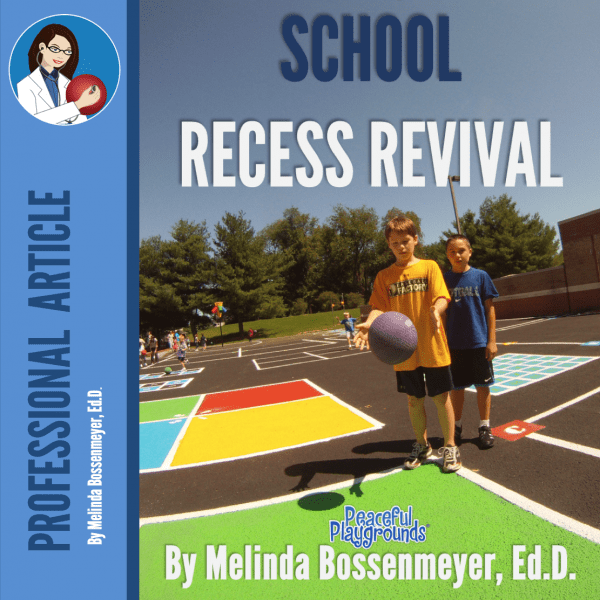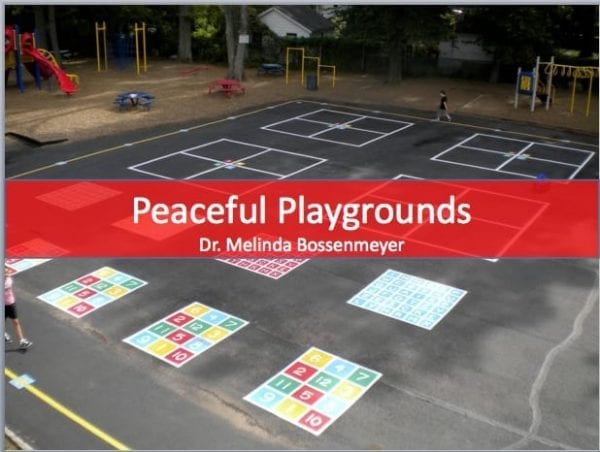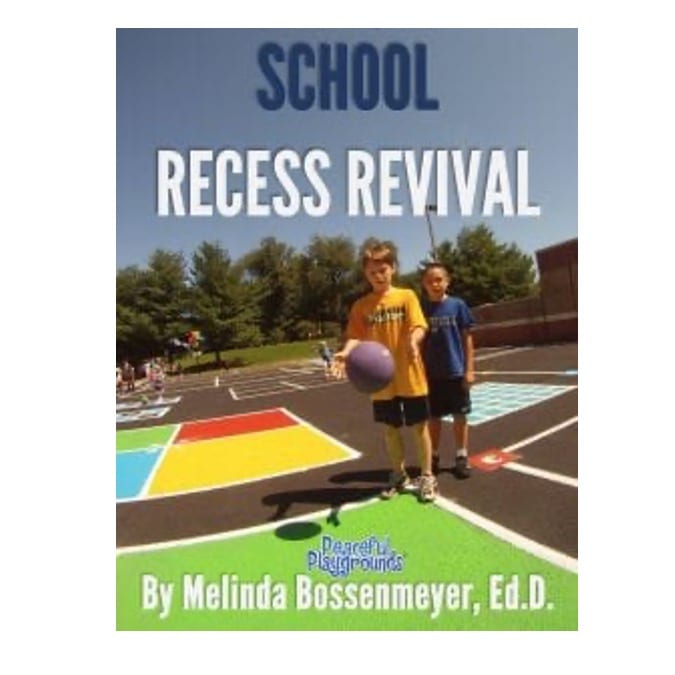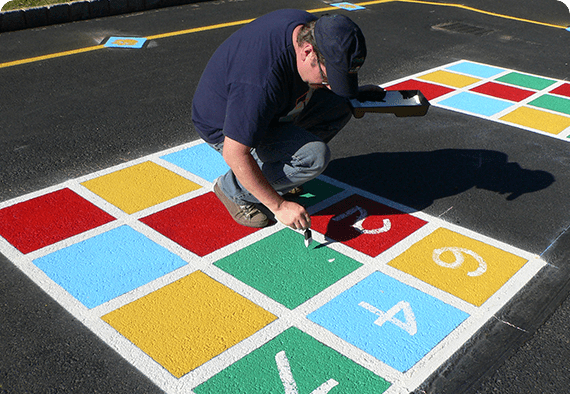School Recess Revival
By Dr. Melinda Bossenmeyer, The Recess Doctor

Mandating School Recess Revival
In recent years, an effort to pass laws mandating school recess for elementary school-age students has picked up steam largely as a result of parent advocates who believe school recess plays an important role in their child's well-being. The first parent uprising formed to put school recess into Florida schools was proposed in 2016 and passed in 2017 after "recess moms'" took to Facebook and lobbied legislators. What started for some parents as "common sense", that kids need a break in the academic day has turned into something more. As they dug into the issue they found that school recess has many benefits that amount to much more than a "break in the school day."
Principal Shalhoub said,
We've had a great response to the new playground. The kids love it, the parents love it.
Murrieta Springs Charter School.
Research on School Recess leads to mandates
Since the discovery of school recess offering "something more in the area of research", parents have used research as a tool for advocating for recess in their children's school. The research they were referring to indicates that physical activity is crucial to children's development and increases a child's ability to focus, attend to tasks, and recall information. Additionally, physical activity (AKA Recess) has been shown to provide emotional or mood benefits, as well as, making sitting still and relaxing easier.
A 2014 study in Pediatrics[1] found that physical activity enhanced cognitive performance and brain function during tasks requiring greater executive control. These findings demonstrate a causal effect and provide support for physical activity for improving childhood cognition and brain health.
This document also provides national guidance for recess in K-12 schools. Some of the recommendations include: provide (at least) 20 minutes daily for recess, prohibit the replacement of physical education for recess, provide adequate spaces, facilities, equipment and supplies for recess, ensure spaces meet or exceed safety standards, prohibit exclusion of students from recess for disciplinary reasons, and provide staff members who lead or supervise recess with ongoing professional development. [3]
Benefits of Recess
A 2017 document[2] on recess from the Centers for Disease Control and Prevention lists the benefits of recess as:
Improves social and emotional development
Improves memory, attention, and concentration
Helps students stay on-task in the classroom
Reduces disruptive behavior in the classroom
Increases level of physical activity
Improving Recess
With the trend toward mandating recess, in the last 3 years, a number of documents have been produced in support of recess to guide schools and parents in improving recess in their schools. The new resources for recess are:
Strategies for Recess in Schools
Recess Planning in Schools: A guide to Putting Strategies for Recess into Practice
Physical Activity During School: Providing Recess to All Students
Right to Recess Campaign Tool Kit: Peaceful Playgrounds Updated 2019

Professional Organizations Supporting Recess
Besides the parent advocates, a number of other influential advocacy groups are taking a stand on recess.
The National PTA has a Resolution in support of School Recess which calls for at least one recess per school day for at least 20 minutes.
The American Academy of Pediatrics has a policy statement entitled, "The Crucial Role of Recess in School." Pediatricians believe that recess is a crucial and necessary component of a child's development and, as such, it should not be withheld for "punitive or academic reasons."
National Association of Elementary School Principals believes that students should participate in supervised structured and unstructured physical activities. Daily physical education and recess are important components of a child's physical and social development. NAESP recognizes that the amount of time allocated for physical activity must be developmentally appropriate.
No Recess, No Problem: Parents Say Otherwise
Gone are the days when administrator, can say that "No recess is No Problem". Parent expectations coupled with the abundance of research on the value of recess and physical activity is reaching a spill-over state. Unless your head is in the sand it is just short of impossible to deny the value of recess and keep a straight face.
No longer is it acceptable to say that spending more time on academics is a valid reason to deny recess. To say that the lack of recess will allow more time for academic development has been proven in numerous studies to be erroneous.
How informed educators can say otherwise is misguided and disingenuous. So get on board and join the movement that is sweeping the nation that "recess and physical activity are a crucial part of the school day as they contribute to brain development and academic success."
[1] Pediatrics. 2014 Oct; 1234 (4). Effects of the FITKids randomized on controlled trial on executive control and brain function.
[2] Centers for Disease Control and Prevention, 2017. Physical Activity During School: Providing Recess to All Students.
[3] Source: CDC and SHAPE America- Society of Health and Physical Educators. Strategies for Recess in Schools. Atlanta, GA: Centers for Disease Control and Prevention, US Dept of Health and Human Services; 2017.
Melinda Bossenmeyer, Ed.D. is an expert witness for school supervision, playground injury cases, physical education, and coaching cases related to supervision. Professional articles by Dr. Bossenmeyer © Peaceful Playgrounds 1998 All Rights Reserved
Peaceful Playgrounds Recess Program
Our Most Popular Program – Add 100 painted games to your playground
Are you noticing more playground conflicts?
Children are not immune to life's stressors. Increased use of technology and the pressures of growing up can take a toll on our learners.
From lack of interest to overcrowded playgrounds, school recess can become an overwhelming and chaotic operation. In fact, principals and recess supervisors across the nation will tell you recess discipline remains one of the biggest issues school staff and administration face.
Over 9,000 schools across the nation have implemented Peaceful Playgrounds Recess Program and they've noticed significant improvement in their playground environments and kids health and physical activity.



